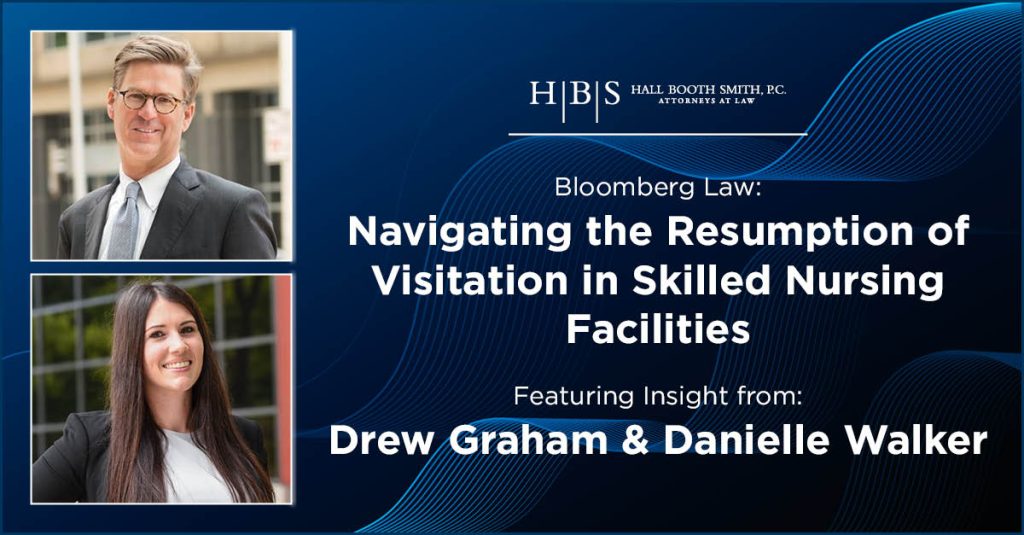
Bloomberg Law: Graham & Walker Discuss Implications of CMS’ New Guidance on Nursing Home Visitation

In an article published in Bloomberg Law on April 14, 2021, Partner Drew Graham and Associate Danielle Walker discuss the implications of the Centers for Medicare & Medicaid Services’ (CMS) new guidance on nursing home visitation.
Throughout the COVID-19 pandemic, CMS has recognized the toll the pandemic has taken on nursing home residents, from infection outbreaks to social isolation. In its recent guidance issued on March 10, 2021, CMS offered advice as to how residents, staff, and visitors should navigate the risks and challenges associated with the resumption of visitation in skilled nursing facilities.
“Skilled nursing facility staff have done heroic work over the past year. While the resumption of visitation is a positive development, there are potential risks to consider,” the authors write.
Drew and Danielle explain risks to consider before allowing resumed visitation, including visitor documentation to manage maximum occupancy, staff and visitor compliance with core principles of infection prevention, and other significant risks associated with numerous visits, such as falls and elopement.
“CMS has made clear that visitation will be addressed as a part of the survey process,” they explain. “Visitation access will be scrutinized, and facilities are required to provide visitation unless there is an adequate reason to cease visitation related to clinical necessity for resident safety. As such, skilled nursing facilities must adhere to the current guidance while safely facilitating visitation to avoid negative survey results.”
They ultimately suggest the use of visitor attestations to confirm visitor compliance with the core principles of infection prevention.
“Attestations should be executed by all visitors both before entry and upon exit from the facility,” they write. “The attestations should identify all elements of infection prevention and memorialize the visitor’s pre-visitation adherence to same. Visitors should also execute an informed consent form upon entry, which should include an assertion that the visitor is aware of the risk of contracting COVID-19 by virtue of visiting the community and, as noted above, agrees to compliance with infection prevention protocols.”
For the full article, click here.


Leave a comment
You must be logged in to post a comment.